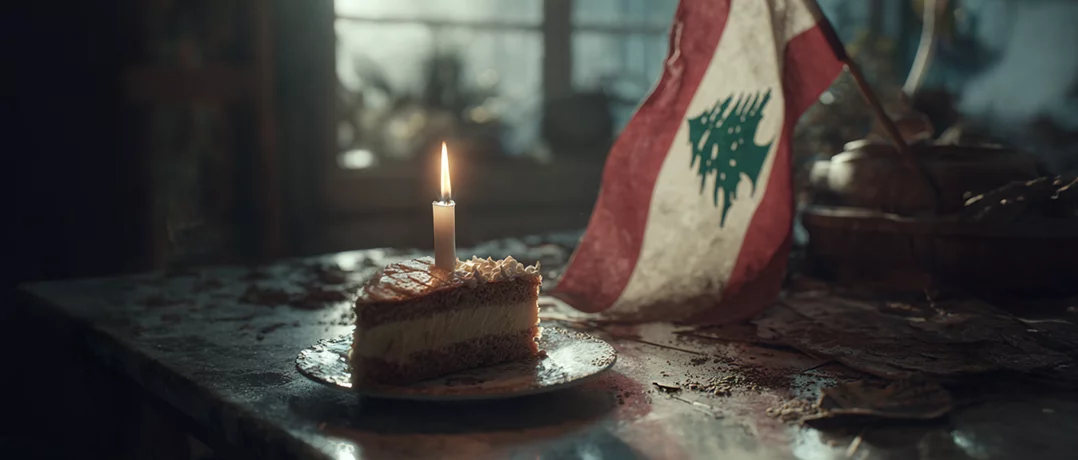A psychological look at how Lebanese people transform grief into resilience through the quiet power of shared belonging.
Joy in small doses: The psychology of celebration in a mourning country
Joy in small doses: The psychology of celebration in a mourning country


On a summer night in Beirut, music spills from a wedding hall while, just streets away, a family mourns their dead. Fireworks cut through the darkness of neighborhoods still waiting for electricity. In Lebanon, joy and mourning do not take turns; they overlap, weaving into the same rhythm of daily life.
For a country that has endured decades of war, collapse, and catastrophe, celebration should feel out of place. Yet, it is everywhere, in the stubborn clinking of glasses, in the elaborate weddings that defy economic logic, in the parties that erupt even in the shadow of tragedy.
This is Lebanon’s paradox: a place where loss is permanent, but joy insists on returning in small doses. To outsiders, it may look like denial. To those who live it, it is survival. The psychology of celebration here is not frivolous, it is vital, a collective way of reclaiming life in a nation that is always mourning.
Micro-Resilience: Joy in the midst of crisis
Joy in Lebanon does not arrive in abundance; it appears in fragments, small enough to hold in one hand yet powerful enough to sustain entire communities. Lebanon embodies this truth. Psychologists describe such moments not as escapes from suffering, but as their counterbalance, small yet potent acts that allow the human spirit to endure.
Clinical Psychologist Raghida Melki explains that the pursuit of joy amid grief is deeply rooted in human nature.
We are wired as humans to be balanced in the emotional experience. Even in periods of grief, these small doses of joy serve as the basic psychological breathers. They help us regulate intense emotions
In Lebanon, where crises are recurrent, from economic instability to war and collective trauma, this coexistence of grief and joy can be understood through the lens of post-traumatic growth. “Post-traumatic growth is not only about surviving trauma,” Melki notes, “it’s when we find meaning, strengthen social bonds, and appreciate life despite everything. All the celebrations, community gatherings, and small personal joys we have are expressions of resilience.”
When asked whether these small doses of joy prevent long-term psychological breakdown or merely delay it, Raghida Melki frames them within the psychological concepts of risk and protective factors. “People use these acts as protective factors,” she explains. “They help protect against low moods, keep emotions in balance, and prevent chronic stress. They also provide proof to the brain and mind that safety and pleasure still exist, even amid instability.” However, she cautions that if joy is used solely as avoidance or distraction, without processing grief or stressful experiences, it may only offer a temporary delay. “It’s like delaying anxiety or depression, rather than preventing it. In Lebanon, where collective trauma is continuous, these moments must be sustained alongside other meaningful interventions, support systems, and collaborative efforts.”
These moments function as what experts call micro-resilience. Rituals of joy serve to recalibrate the nervous system, offering temporary reprieve from the weight of persistent stress. In Lebanon, where life can feel dictated by forces beyond one’s control, celebration is a reclamation of agency, a quiet insistence that life continues even in the shadow of loss. Melki describes Lebanese celebrations as vivid examples of micro-resilience in action. “Micro-resilience is about what we do daily, our activities, our experiences, and how these enhance and reinforce our coping strengths,” she explains. “They remind individuals that joy and the meaning of life persist, even in adversity.” “Denial can look superficial,” Melki adds, “but when we have these rituals, it demonstrates a deeper pattern of resilience. It is not mere avoidance; it is a deliberate integration of joy and sorrow that strengthens the social fabric.”
Communal buffering: The power of shared joy
The collective nature of these acts amplifies their power. Communal gatherings, shared meals, or bursts of music create what psychologists term communal buffering, the capacity of groups to absorb and soften the burden of grief together. Here, joy is never private; it is defiant, visible, almost tangible, as if its very intensity can outshine the sorrow that surrounds it.
And perhaps most powerfully, joy is shared. Melki describes communal buffering as inseparable from Lebanese culture:
When life is celebrated, grief is softened. Laughter, music, and dancing are shared, connecting people and reaffirming mutual support. These rituals help individuals feel less lonely, the most difficult thing to endure. Joy, hence, is a medium for resilience.
In Lebanon, then, joy is not frivolous. It is therapy without walls, survival without apology, and an insistence that life continues, not in the absence of grief, but alongside it.


